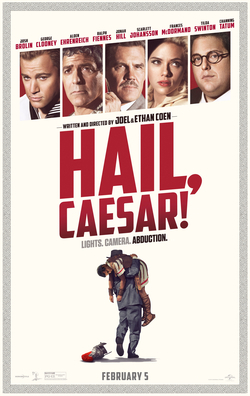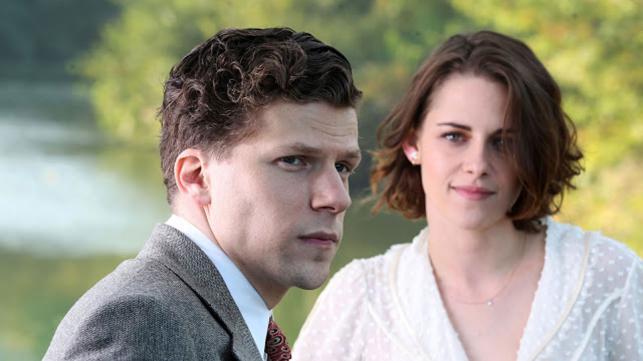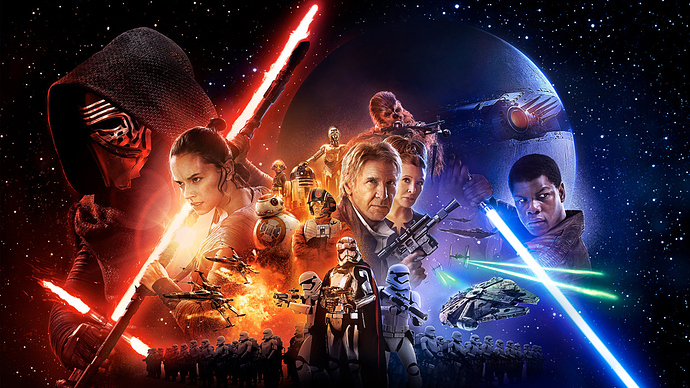This is a great discussion but I have to take issue with this: I would argue art isn’t subjective, it’s not an adjective to be used to praise something. Art is a medium, i.e. all paintings are art, all films are art, and so on. This means there is a lot of bad art, but it also establishes a base line for everybody, because if we followed Stanton, then not only would there be no bad art (which is absurd, as there patently is, even if there’s no universal acceptance of which artworks are bad) but nobody would know what are is, as it would all be subjective. It would also, damagingly, reawaken banal formalist arguments about whether cinema or comics are art, which post-modernism thankfully left behind (one of its virtues at least).
It would do that absolutely not if everything is subjective.
If you follow me you can of course say there is bad art. But you have to decide for yourself what is bad art and what not.
Everything which is made can be art, but nothing must be art, even if it is made with the highest art intentions which are possible.
There is still a constantly changing consensus what is art and what not, but it is a consensus build of many subjective opinions and not by some unknown godlike people who are the truth keepers. It’s still an opinion and not a truth and I like everybody else have the right to disagree.
But I understand that the “fact” (actually another opinion) that there is no truth (actually there is no truth there at all for everything) is an uncomfortable notion for most people. So people are mostly looking for some definite answers, and also about art, but at the same moment don’t like to have the feeling that others tell them what is good and what not. ![]()
I understand that the “fact” (actually another opinion) that there is no truth
Are you sure that you’re not the German Foucault ;)?
I can understand your post-modern viewpoint and if there’s no truth about art, then there are actual critical and cultural consensus about artworks. You’d have to be very contrarian to argue the Mona Lisa isn’t art, or a Beethoven symphony and even you did, you would have to acknowledge that most people accept its art status. It’s the boundaries which are hazy and continue to grow hazier. I think it helps to follow a theory of congruence: if we accept exhibit A as an artwork (Michelangelo’s David, Proust’s Remembrance of Things Past, whatever), then the exhibits B, C, D, etc, which share their formal properties (sculpture, novel) are also art, even if they’re not good art (they can in fact be utterly terrible). The problem with this line of thought of course, is that it finds it hard to accept new art forms; hence, why it took so long for cinema to taken seriously. Still, at least it helps explain why we recognise when something is art even if we can’t explain why.
the minimum approach art should have is that it is entertaining.
Isn’t this very limiting thought? Why does art have to be entertaining? I thought you were arguing against strictures about what art is or isn’t?
Slow West (2015)
Adventure, quest, romantic dreams, romantic illusions, beautiful shots of beautiful landscapes, beauty of nature, harshness of nature, harshness of human nature, imperishable spirit of human nature, frontier of civilization where life has no value but death has its price tag, black-clad sharp-dressed sharp-shooting bounty hunter, German writer who talks how we will soon start mythologizing and romanticizing native people and their cultures, love, death and redemption in the Old West. Death of the Old West and birth of a new life.
When the movie is called Slow West you know what to expect, but don’t worry. Although this is slow-paced western, like old Budd Boetticher’s movies, it says everything it needs to say in 80 minutes, and although there are similarities in pace and realistic style of Andrew Dominik’s The Assassination of Jesse James, this movie is not without quirkiness. Ben Mendelsohn has become one of my favorite modern character actors. This is a first-rate modern western, let’s see if couple of higher-profiled upcoming ones can meet its mark.
Yeah, I liked this one when I saw it in the cinema last year.
The Hateful Eight, which was brutal and nihlistic but beautifully photographed and was such a unique cinema experience.
Star Wars: The Force Awakens - enjoyable but flawed. Still great to have real effects, real people, and scenery back in the Star Wars universe.
Welcome the returning hero! Long time no see (or read) Frank.
Thank you John! Good to be back!
Yes good to see you posting Frank !
Thanks Ennioo it’s nice to be back
Star Wars Episode VII: The Force Awakens (Abrams/15)
“Star Wars Episode VII: The Force Awakens” (2015), directed by J.J. Abrams, is the latest, much anticipated entry in a series that spans 38 years and counting. Every decade since the seventies has had its “Star Wars” and this, the first in a decade, is the start of a new trilogy. George Lucas, the original creator and director of perhaps the most iconic (and financially successful) franchise of all time, sold the rights to the series to Disney in 2012 and it is intriguing to see what “Star Wars” without Lucas is like.
On the whole, it must be said, very good. Abrams, director of the recent “Star Trek” (2009) reboot, working with Lawrence Kasdan (a noted director in his own right) and Michael Arndt, creates a host of memorable new characters: Finn and Rey are standouts, as well as fighter pilot Poe Dameron (Oscar Isaac) and alien Maz Kanata (Lupita Nyong’o). They’re brought to life by a fine cast, with newcomers Ridley and Boyega comparing well to the returning cast, which includes a suitably gruff and laconic Harrison Ford as Han Solo and Carrie Fishers as Leia Organa. In many respects, these performances are the best part of the film. However, not all is so bright.
Adam Driver, as the film’s main villain, the masked, petulant Kylo Ren, lacks a distinctive presence and, in a first for the series, the nefarious evil force fighting the Resistance, seem a little colourless. Perhaps this is due in part to Abrams devotion to recreating the original films to such an extent that “The Force Awakens” in much of its plotting operates as a recreation of “A New Hope” (1977), not so much a sequel as a remake by stealth. Consequently, it lacks the wonder, awe and mystery that defined the first film and is more of an affectionate homage, with action scenes directly echoing previous ones. Even two shocking plot twists which it would be churlish to reveal, are not so very distant from previous films.
It’s exciting, it’s funny and ends on a cliffhanger which will leave you waiting for the next instalment; however, it will also leave you hoping for a more original, creative film next time we visit a galaxy, a long time ago and far, far away…
The Hatefull Eight. Long on time short on story. Not a bad movie. Shot well. The 70 mm film gives it a rich depth. All shadow and light contrasts are sharp and the colors pop. But again not a whole lot gos on in the 3 hour running time. Great cast. Think they could have been used better
The Revenant
Enjoyed this one and was surprised by the high level and effectiveness of the special effects. The bear attack in particular was very convincing. We were sat in the second row in a decent size screening room so I was certainly immersed which may have helped. Anyway, visually engaging, sometimes even verging on the hypnotic, and some very good performances.
The Green Inferno
-Long waited return of the cannibal movies.  Eli Roth’s film follows closely to the tradition of the italian films of the 70’s and 80’s. Updating the genre to this day makes the difference between the cannibals and the civilized even more striking as the young people are always depended on their cell phones. Too bad that the film just ain’t that good. There’s some good scenes and some brutality but it’s lacking the really disturbing atmosphere of Cannibal Holocaust and other “classics”. Worst thing in the film is that it’s plagued by some really bad comedy scenes. Also, Roth couldn’t make a decent ending to the film and there’s something like 3-4 scenes in the end that could have been cut out, one of them even appears during the closing titles.
Eli Roth’s film follows closely to the tradition of the italian films of the 70’s and 80’s. Updating the genre to this day makes the difference between the cannibals and the civilized even more striking as the young people are always depended on their cell phones. Too bad that the film just ain’t that good. There’s some good scenes and some brutality but it’s lacking the really disturbing atmosphere of Cannibal Holocaust and other “classics”. Worst thing in the film is that it’s plagued by some really bad comedy scenes. Also, Roth couldn’t make a decent ending to the film and there’s something like 3-4 scenes in the end that could have been cut out, one of them even appears during the closing titles.
5/10
Over the past couple of months, I’ve seen the following films:
The Revenant - incredible, hypnotically good with some of the finest cinematography outside of a Malick film you’re likely to see. Film of the year without a doubt.
The Hateful Eight - perhaps Tarantino’s most serious film; it’s filled with references of course, but it never aims for the movie-movie knowingness which underpins so many of his other films. It’s relatively sober compared to his other works and Morricone’s score is excellent.
Youth - Michael Caine and Harvey Keitel are both very fine in this laid-back, occasionally overly sentimental film. Some nice moments, Paul Dano is memorable, but it’s too mawkish and the transcendence it aims for is never quite pulled off.
Hail, Caesar! - frequently funny, with some dead-on recreations of Old Hollywood cinema, it nevertheless feels like a decidedly minor Coen Brothers’ film, being a rather throwaway shaggy-dog story, even if we have a lot of enjoyment along the way.
Stefano Sollima: Suburra (2015)
-Excellent political mafia film from Sergios son. Intense film, very beautiful looking, violent and sexy. My only complaint would be some choice of music. Go and see it if you have the chance.

Hail, Caesar! (Joel & Ethen Coen, 2016
“Hail, Caesar!” (2016), directed by the Academy-award winning Coen Brothers, is a light-hearted portrayal of nineteen-fifties Hollywood, where large film studios are all powerful. In amongst the barbs and repartee, the Coens’ clearly feel an affinity with the era, and along with their cinematographer Roger Deakins, recreate the visual look of the decade with an uncanny precision. It’s the first film in years to recall the Technicolor brightness of American pictures of that time; it reveals a real affection, while still maintaining a clear-eyed sense of the iniquities of the then-studio system. Studio executives control their stars’ lives to the smallest degree, while waspish gossip columnists try to discover any scandal.
The Coens add into this mix a number of pastiches, not just of Roman and Biblical epics, but of Westerns and musicals, with a spot-on musical number featuring Channing Tatum as a sailor (in clear reference to “On the Town”, 1949), one of the film’s highlights. Being at heart a screwball comedy means the Coens’ darker impulses are kept in check so that even the malevolent group the Future, who abduct George Clooney, are seen as charmingly misguided.
Josh Brolin displays fine comic skill and brings a layer of nuance to his serially perturbed studio boss character, while the ensemble cast match the all-star extravaganzas so popular in the nineteen-fifties: everyone seems to appear, from Tilda Swinton to Scarlet Johansson, Jonah Hill to a very memorable Aldren Ehrenreich as a singing cowboy.
Perhaps one criticism that could be made is that it never becomes more than the sum of its parts: the script, by the Coens, offers a wonderful whirlwind of episodes, jumping from Ralph Fiennes’ refined director offering Ehrenreich elocution lessons to a distraught Brolin trying to hide the fact his biggest star is missing. Yet it never quite coheres into an organic whole and by the time it concludes, you’re left feeling that it is a rather slight, shaggy-dog story: a lot of fun and frequently amusing, but not one of the Coens’ masterworks, a minor work by major auteurs.
However, it would be churlish to deny the film’s many pleasures, from Carter Burwell’s score to the production design by Jess Gonchor, with costumes from Mary Zophres. It’s authentically nineteen-fifties and that alone is reason enough to see it; combined with witty performances and deft direction, it almost doesn’t matter that the film is about very little. Enjoy the ride and forget about the destination.
Hail Caesar - Los Coens
A lesser Coen, no doubt, maybe their weakest film so far, but les Coens are always worth a watch. The episodic structure doesn’t add to a fitting whole, but as always some nice scenes here and there. Positively said it is more than one might expect from the new Dolph Lundgren film. 6/10

Café Society (2016, Woody Allen)
Just got home from the avant première of Woody’s latest, Café Society (I’m slacking, haven’t seen his previous two movies); it was well-received in Cannes and did some good business at the box-office at home during its opening weekend. It’s a period romance (largely set in 30’s Hollywood) as well as an ensemble movie (partly set in New York) about a Jewish family.
Café Society is not Top Woody, but in some scenes it comes close. It reminded me a little of Radio Days, but it’s more stern and bitter in tone (one of the characters says: “Life is a comedy, but it’s one written by a sadistic comedy writer.” - Hell yeah).
As usual performances are superior and to me the only real problem was that the two angles (romance/ensemble) don’t really match: the romantic storyline of a young Jewish boy from the Bronx (Jesse Eisenberg) who travels to Hollywood and falls for a young woman (Kristen Stewart) who’s already engaged, is so incredibly strong that what happens to his family back home often feels like un unwelcome distraction. Lots of twists and turns, so you might not want to read too many revealing articles about it before watching the movie.

